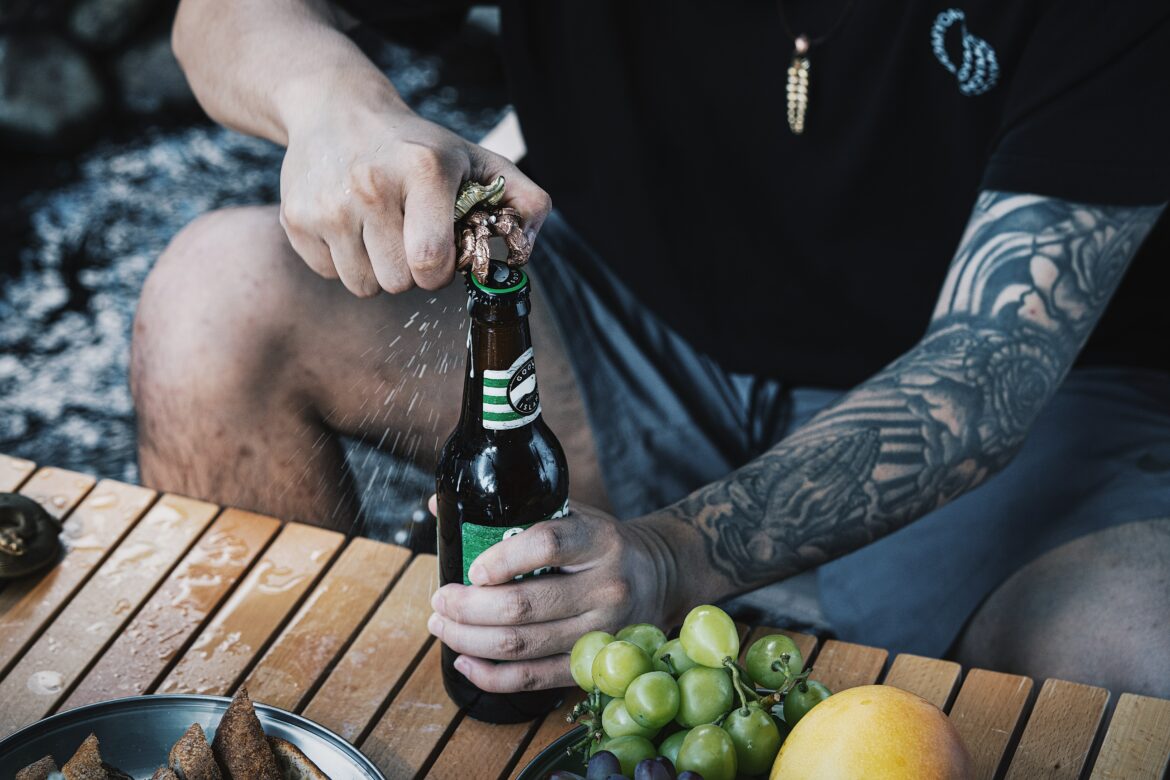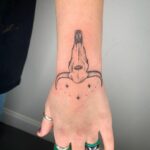Table of Contents
Todays topic is as debatable as pineapple on pizza: whether or not you should drink before or after getting a fresh new tattoo. I know what you’re thinking, “A celebratory drink before the pain or a few shots after to commemorate the new art, what’s the harm?” Well, my ink-curious friends, it’s not as simple as that. The relationship between alcohol and tattoos is an intricate dance, a tango if you will, with its unique rhythms and potential toe-steps.
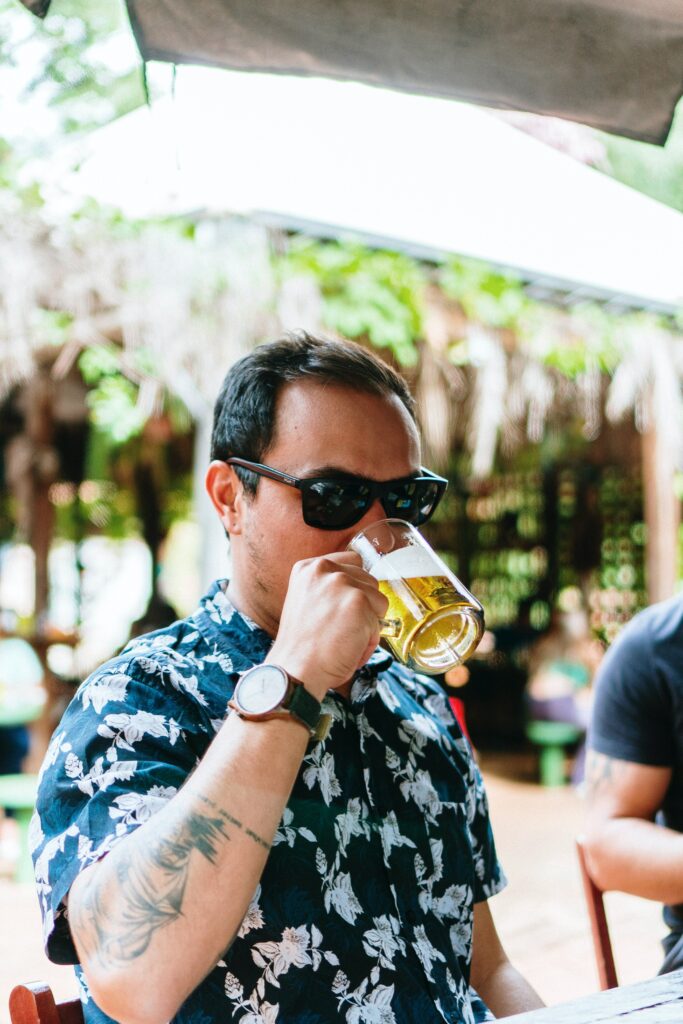
As we traverse this labyrinth of liquor and ink, I’ll equip you with all the need-to-know info that I’ve gathered over years of tattooing, occasionally punctuated with some of my trademark quips (you’re welcome in advance). You’ll gain insight into the effects of alcohol on your body’s healing process, the impact on pain tolerance, and whether or not it’s wise to toast to your new masterpiece. By the end of this article, you’ll be a step closer to being the savvy, responsible, and well-informed tattoo collector I know you can be.
Drinking Alcohol Before Getting a New Tattoo

Let’s get one thing clear: professional tattooists are legally prohibited from tattooing anyone under the visible influence of alcohol. Beyond the legalities, it’s just not a good idea to be knocking back drinks 24 hours prior to your tattoo appointment. Here’s why:
Alcohol Thins the Blood
The equation is simple: more alcohol equals thinner blood. One might not realize this, but even a single drink can mess with your blood’s clotting abilities. This presents a set of problems during the tattoo process. Here’s how:
Excess bleeding can affect visibility
With alcohol thinning your blood, there’s a good chance of excessive bleeding as the tattoo needle goes to work on your skin. Remember my client, Sally? A vibrant, energetic woman who loved her wine a bit too much. She came in for a tattoo after a few glasses, and let’s just say, it was a bloody affair. The excessive bleeding made it difficult for me to see what I was doing, thus compromising the final result. So, if you want to see your tattoo instead of a bloodied mess, stay away from alcohol 24 hours prior.
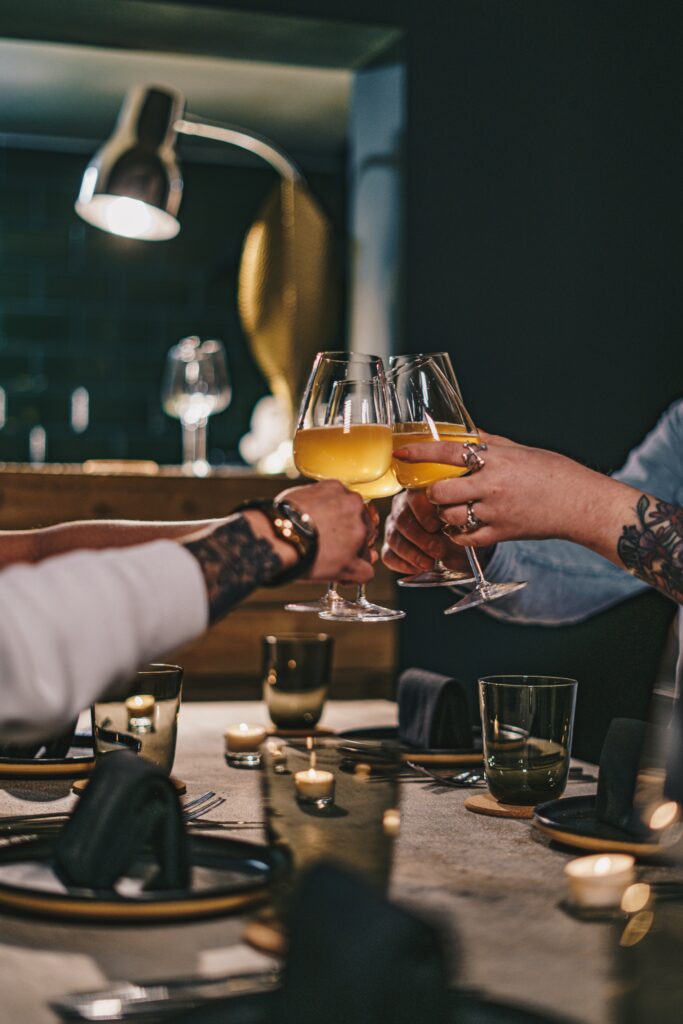
Alcohol can dilute the ink
As a tattooist, I know how the body reacts when it’s being tattooed: it sends more blood to the area. Now, if your blood is thinned out from alcohol, this will result in a mix of extra blood and tattoo ink, causing your tattoo to appear patchy, faded, and washed out. Not exactly the masterpiece you envisioned, right?
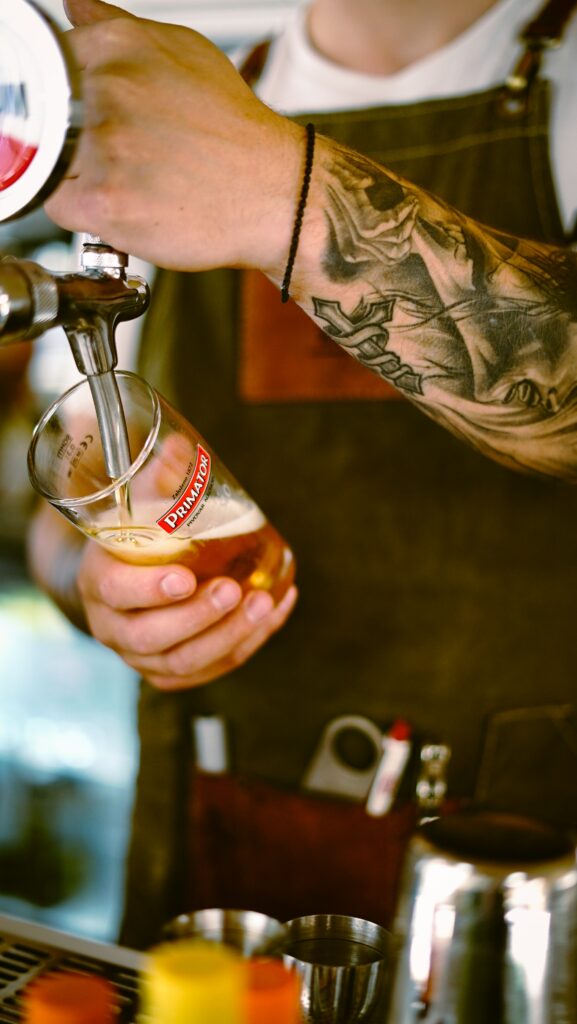
Alcohol Impairs Judgement
We’ve all made questionable decisions while under the influence. Tattoos should not be one of those. You’ll be required to approve the artwork, stencil, and placement during the tattoo process. A drunken mind isn’t the best at making clear decisions, especially when it comes to something as permanent as a tattoo.
Alcohol Affects Your Mood and Behavior During Tattooing
Remember Joe, a regular who loved his lagers? Joe came in tipsy for a tattoo session and let’s just say, it wasn’t the most pleasant experience. Alcohol makes you jittery and restless, which can cause a plethora of issues during tattooing, like misplacement, blowouts, and lack of accuracy. Plus, showing up drunk sends the message that you don’t respect the tattoo artist’s professionalism and creates an awkward atmosphere for everyone else in the shop.
Drinking Alcohol After Getting a Tattoo
So, you’ve avoided alcohol before your tattoo session and you think it’s time to celebrate your new piece of art with a drink. Not so fast! Here are a few reasons why you might want to hold off:
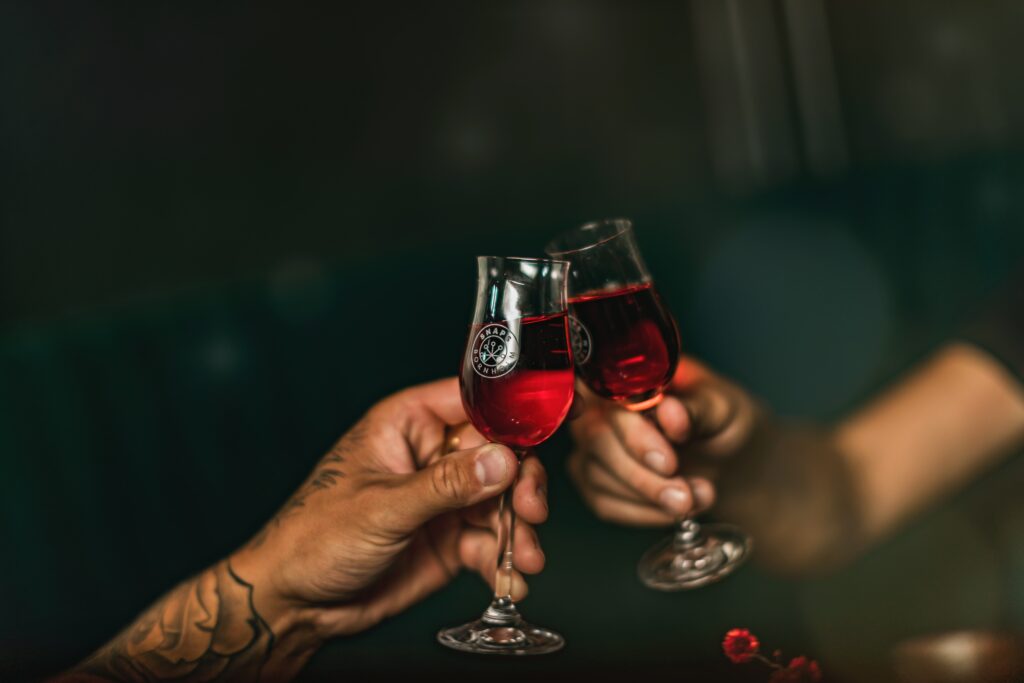
Continuation or Excess Bleeding
Post-tattoo, your body will bleed and ooze for the next 24 to 48 hours. Alcohol can prolong or even exacerbate this bleeding, leading to difficulties in forming new skin, increased risk of infection, and yes, a mess of bloody sheets and clothes.
Inability to Heal
Drinking can affect your body’s ability to heal the tattoo wound and can compromise your immune system. To speed up the healing process and prevent inflammation or infection, it’s important to nourish your body with healthy food and lots of water.
Uncontrolled Sleeping Position
How many times have you woken up in a strange position after a night of heavy drinking? Imagine doing that with a fresh tattoo. The pressure on the tattooed area can lead to prolonged bleeding, possible inflammation, and infection, not to mention an extended healing duration.
Remember, getting a tattoo is a thrilling experience that should be enjoyed sober. So respect the process, nourish your body, and enjoy the beautiful art on your skin. Until next time, stay inked and stay healthy!
How long should one wait to drink after getting a tattoo?
It’s typically recommended to wait at least 24-48 hours after getting a tattoo before consuming alcohol. This period allows the initial healing process to start undisturbed, reducing the chance of excessive bleeding or swelling that can occur when alcohol, a blood thinner, is consumed. This, however, is just a general guideline and the healing time can vary depending on the size and location of the tattoo, as well as your overall health and lifestyle.
Remember, your new tattoo is essentially an open wound, and it needs time to heal properly. Alcohol can dehydrate your body and impede the healing process, so it’s wise to give your body the best possible conditions for a smooth recovery. Staying well-hydrated with water and eating nutritious food will support your body during the healing process. It’s always best to consult with your tattoo artist or a healthcare professional if you have any specific questions about aftercare, including when it would be safe to drink alcohol.
Conclusion
There you have it, folks – the sober truth about mixing alcohol and tattoos. As an experienced tattoo artist, I strongly advise avoiding alcohol 24 hours before and after your session. It’s a well-known fact that getting a tattoo is a major decision. It involves deciding on the design, picking the perfect placement, and accommodating it into your budget, which can range anywhere from $50 to $500 per hour, depending on the complexity and the artist’s experience.
While we all want our tattoos to be as unique and vibrant as we are, we also need to be aware of potential risks, such as infections, allergic reactions, and scarring, especially when coupled with alcohol consumption. Moreover, the aftercare should never be overlooked, as improper care can lead to poor healing, color fading, and ultimately, a disappointing result.
However, remember, a tattoo is not just an aesthetic addition to your body, but also a lifelong commitment to care and attention. Therefore, it’s essential to stay sober, informed, and committed to the process – from the first buzz of the needle to the final healed artwork. This way, you’ll ensure a smoother tattooing experience and a piece of art that you’ll love and cherish for years to come. Here’s to healthy habits and beautiful tattoos – the perfect blend of art and responsibility!
